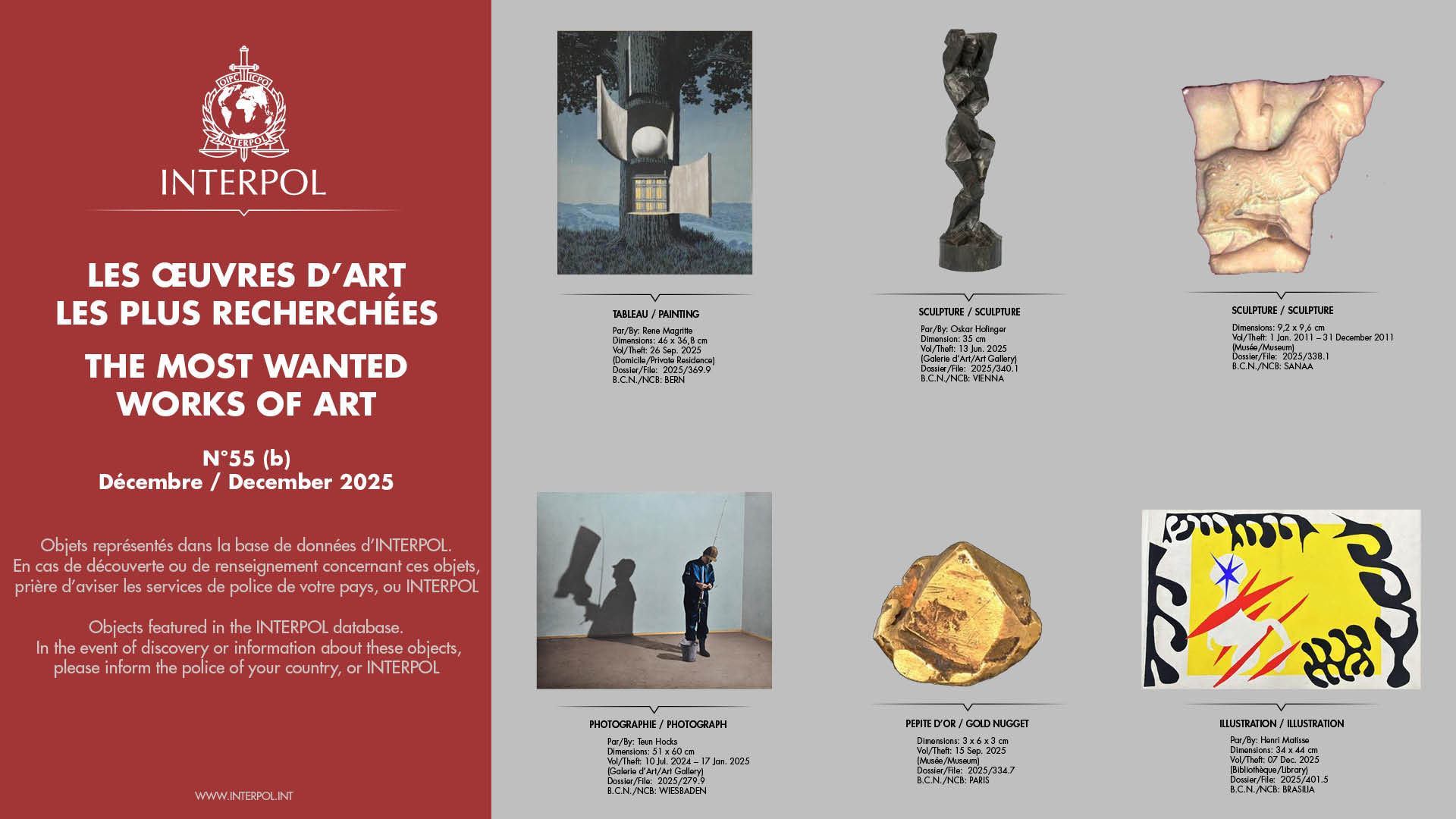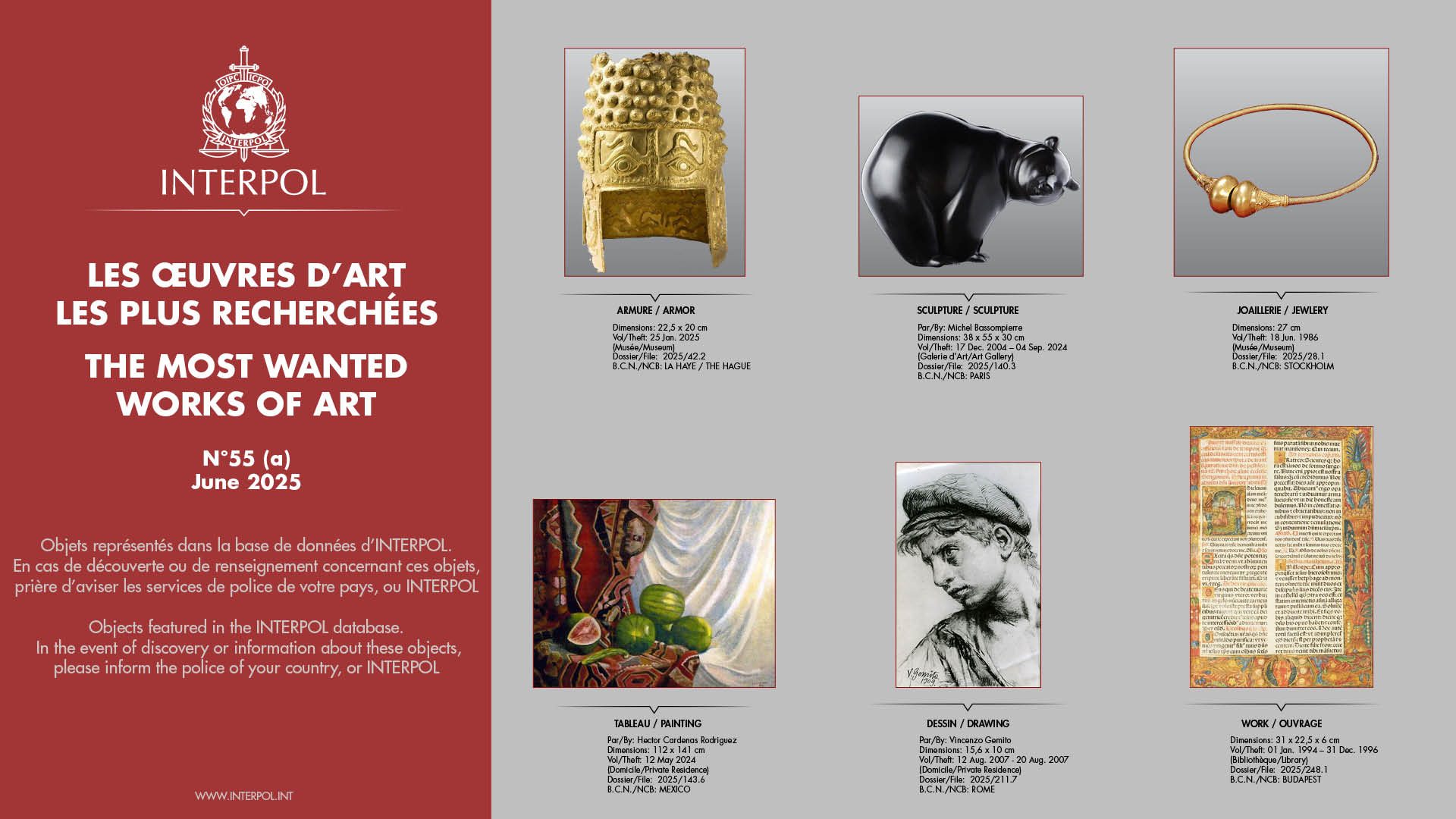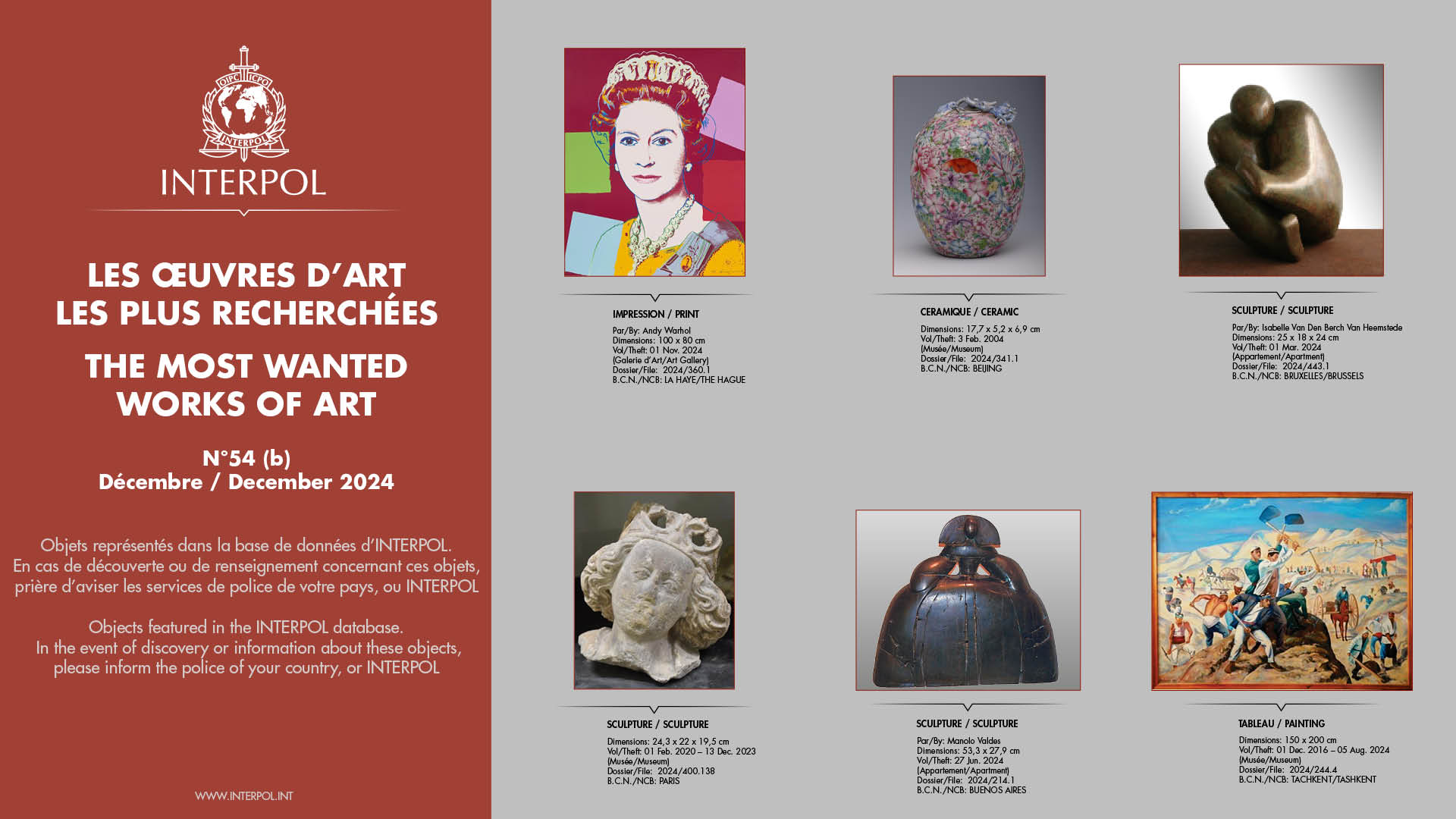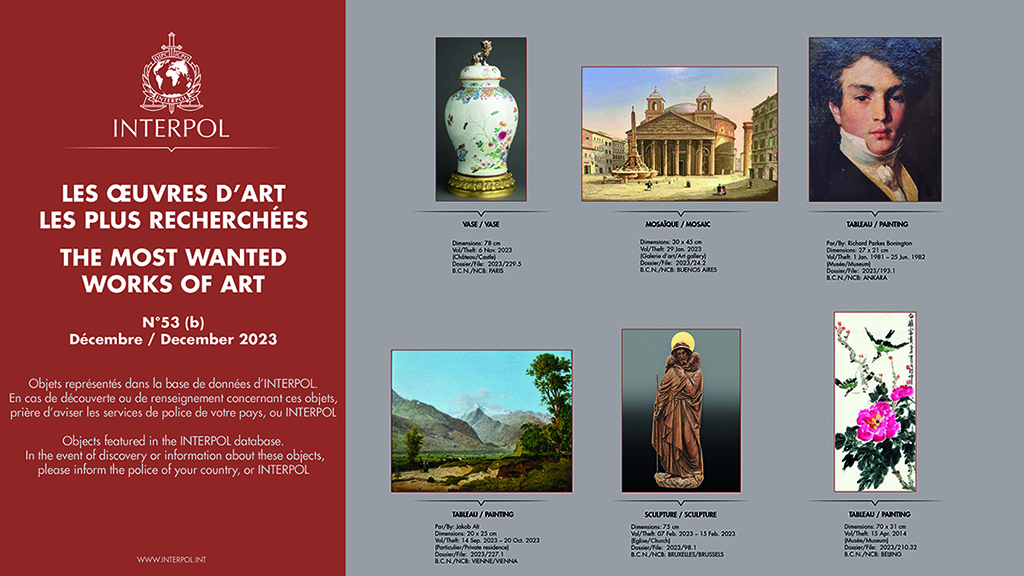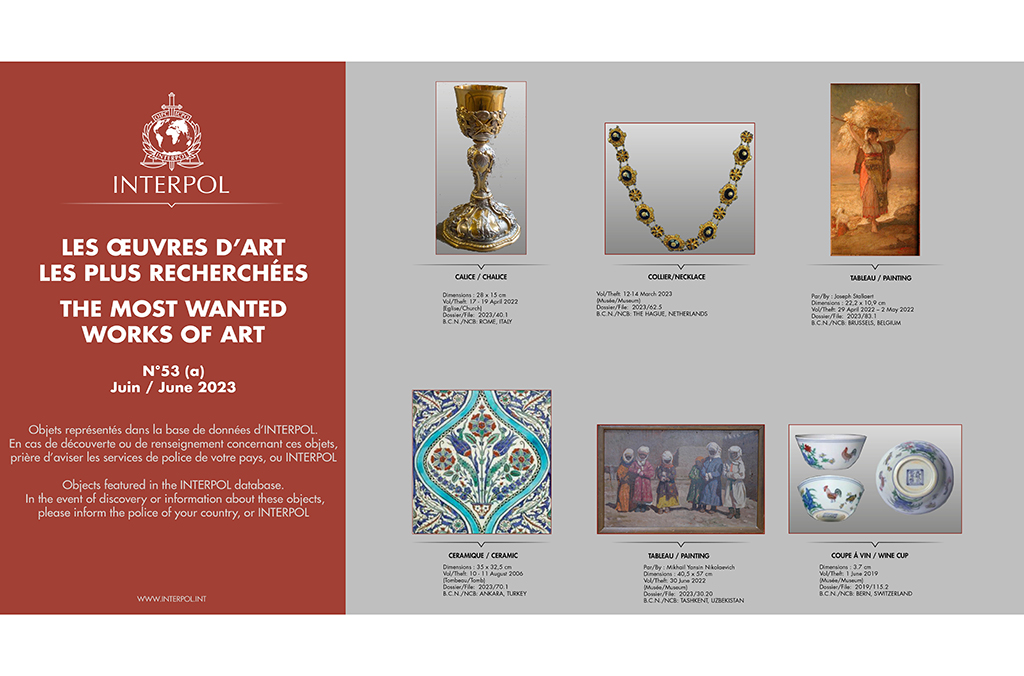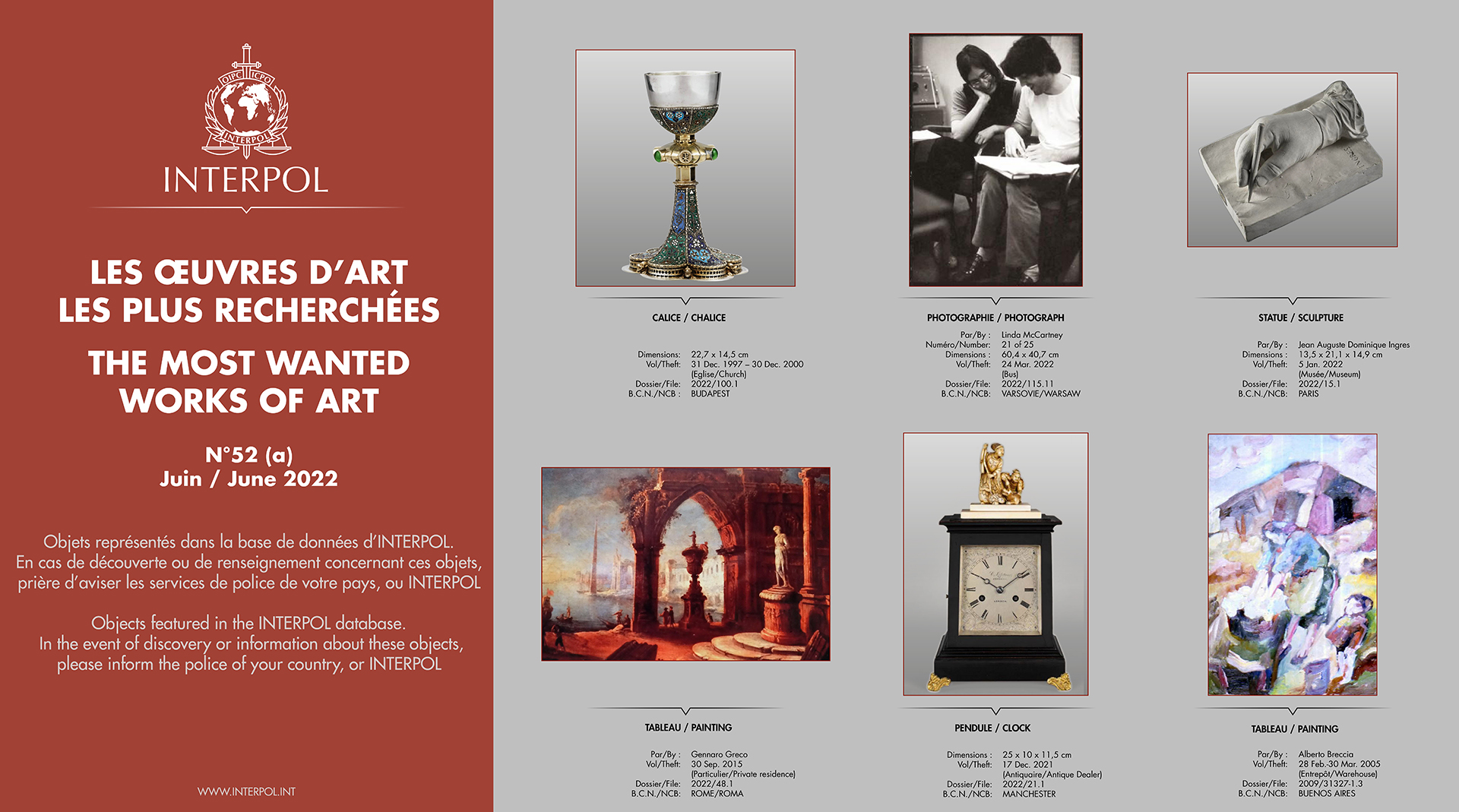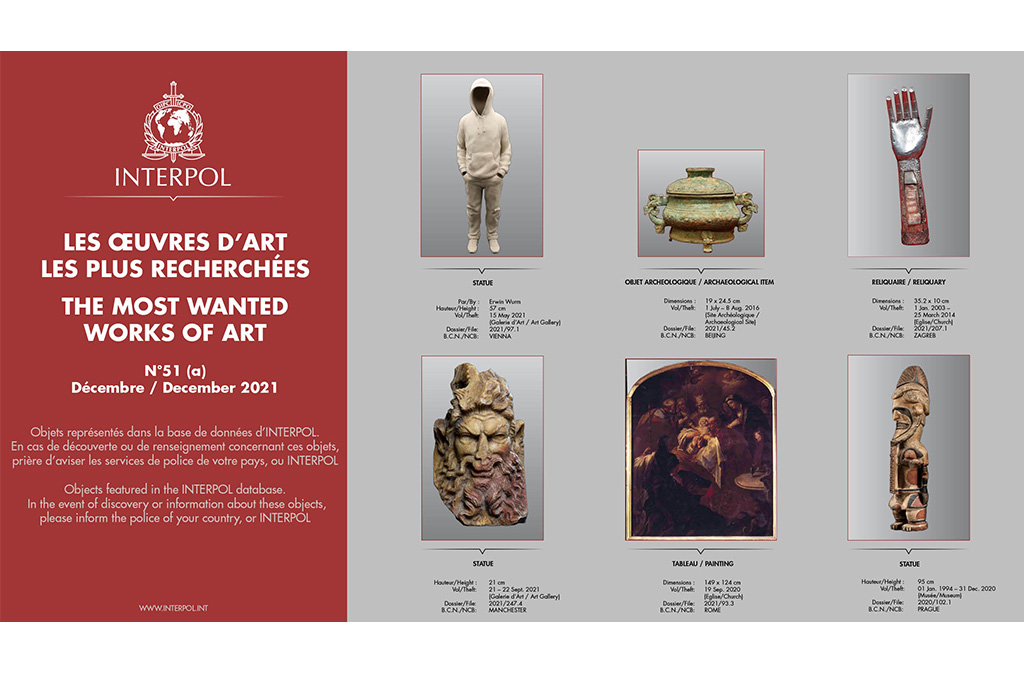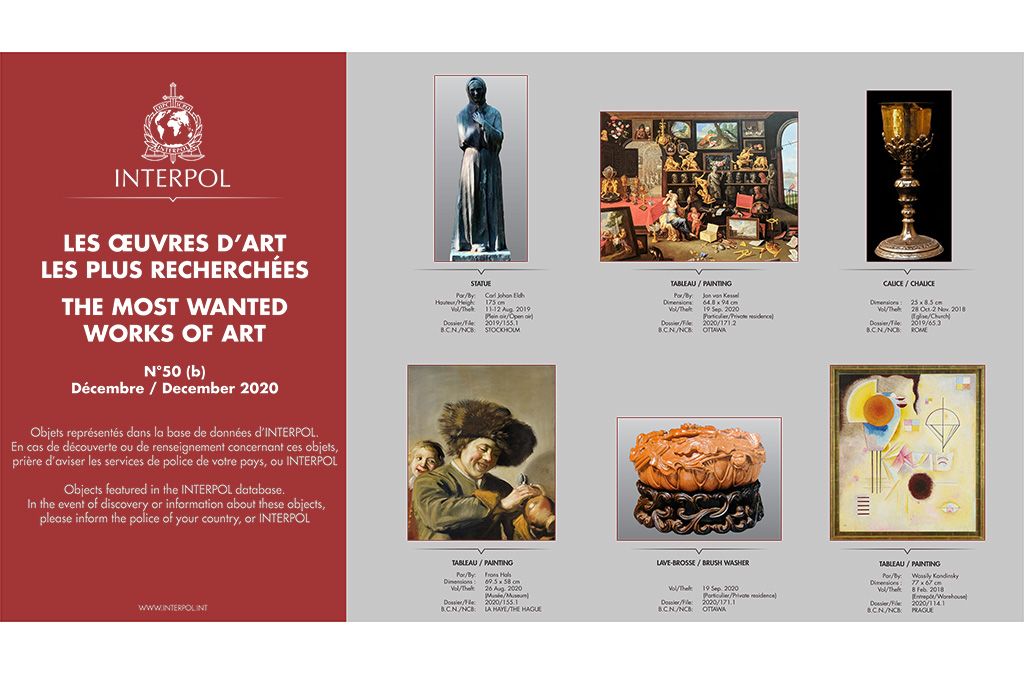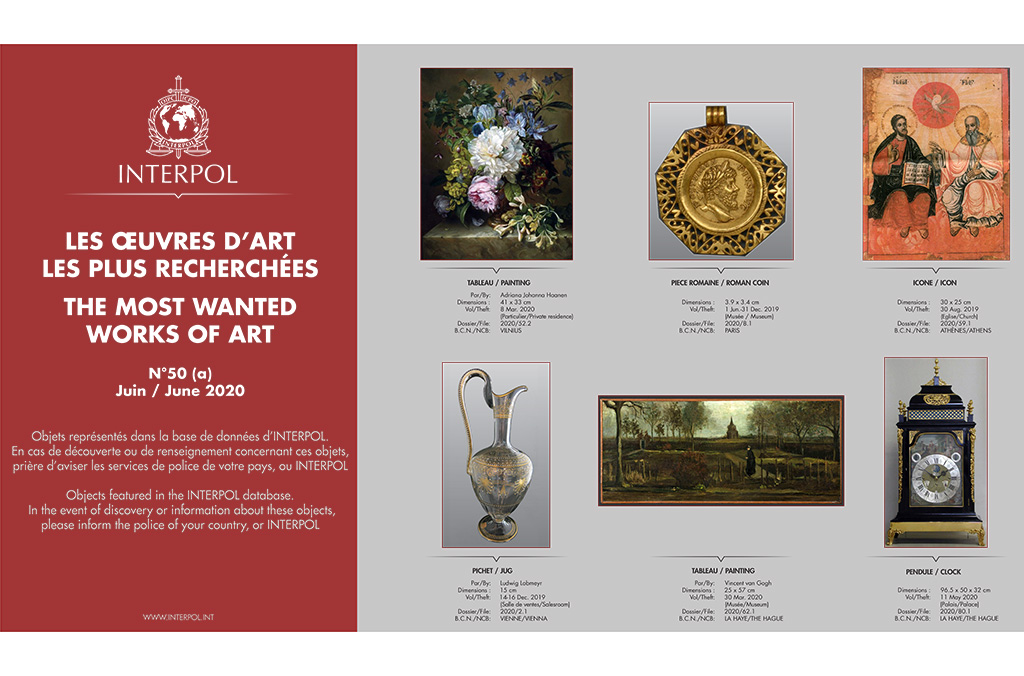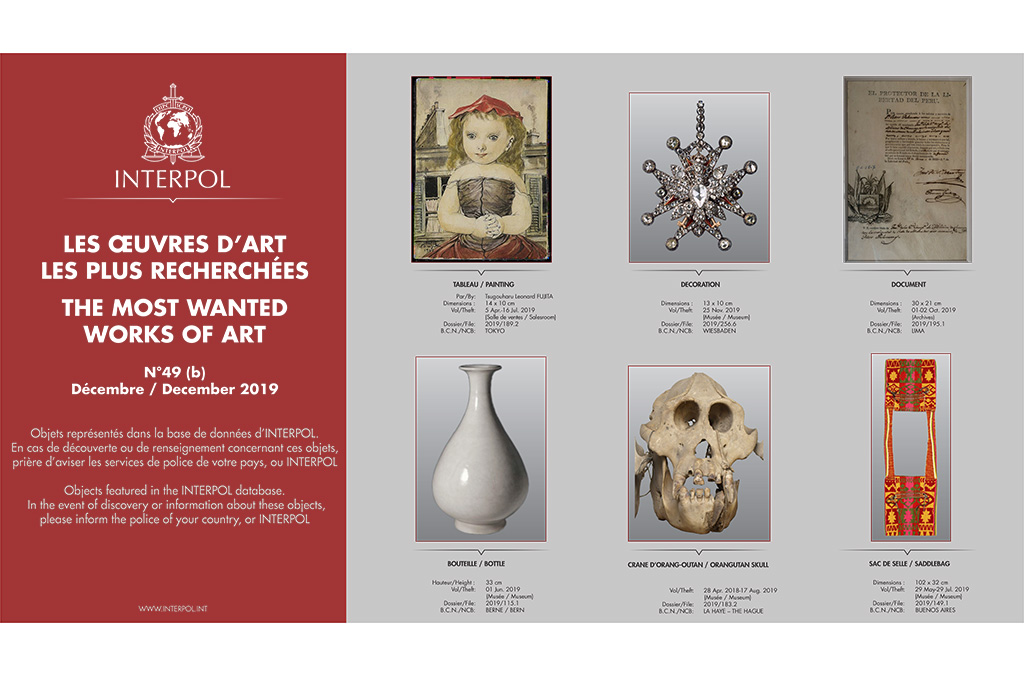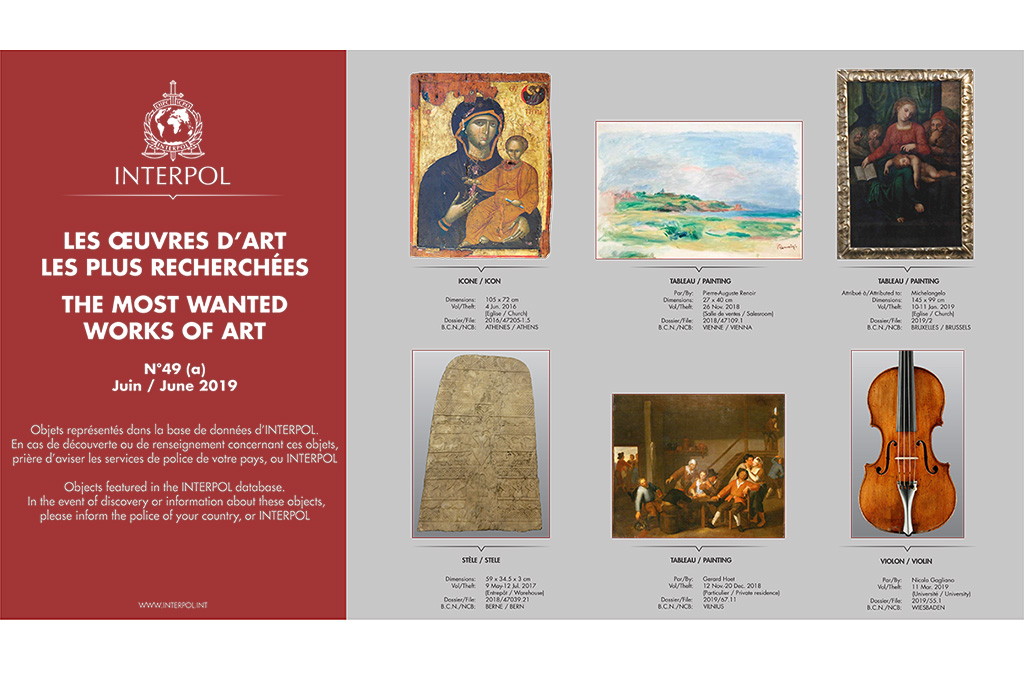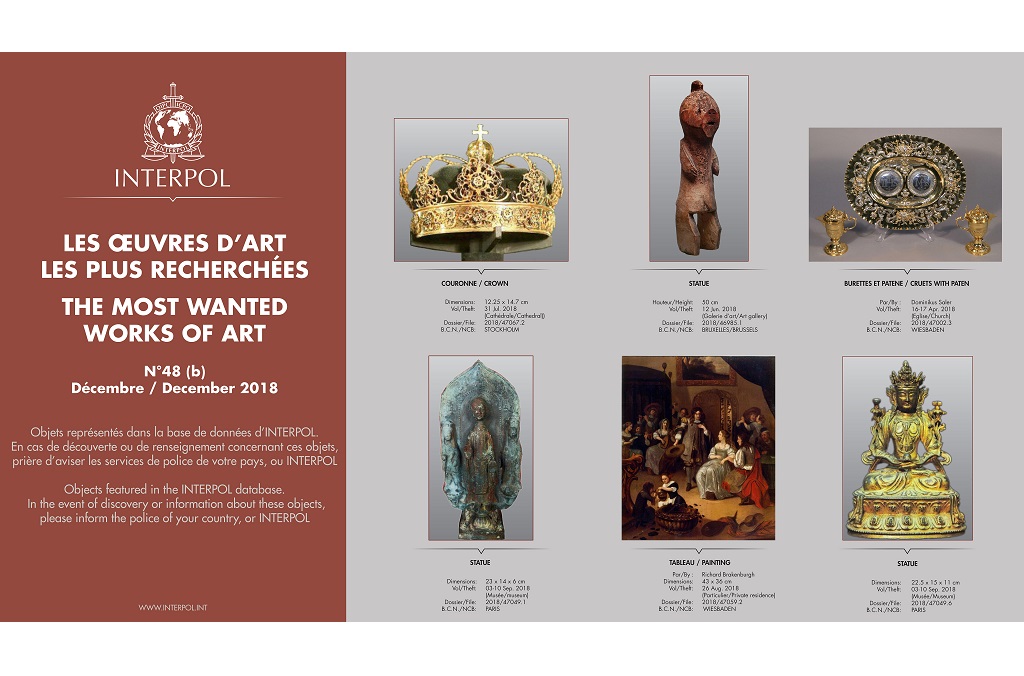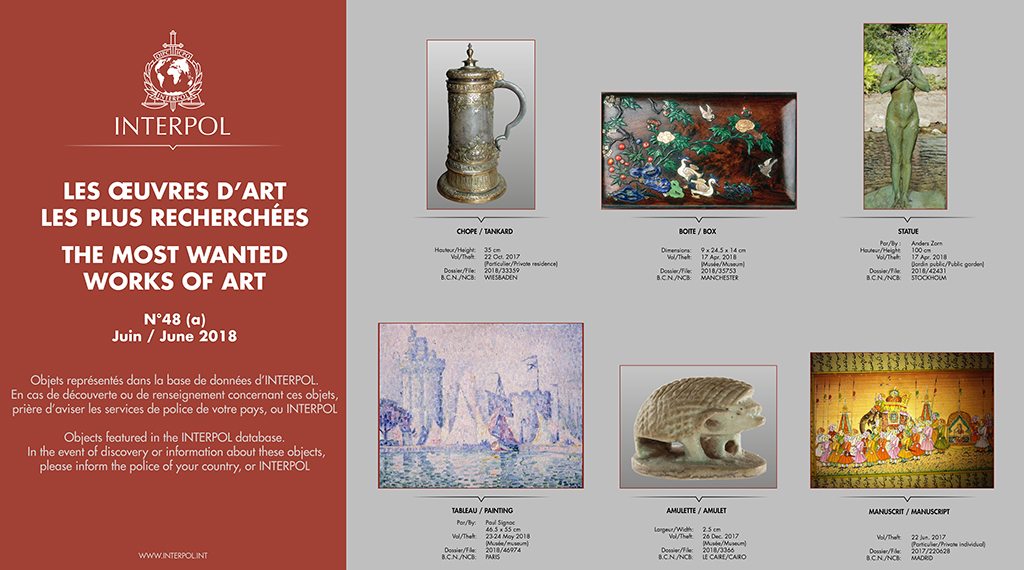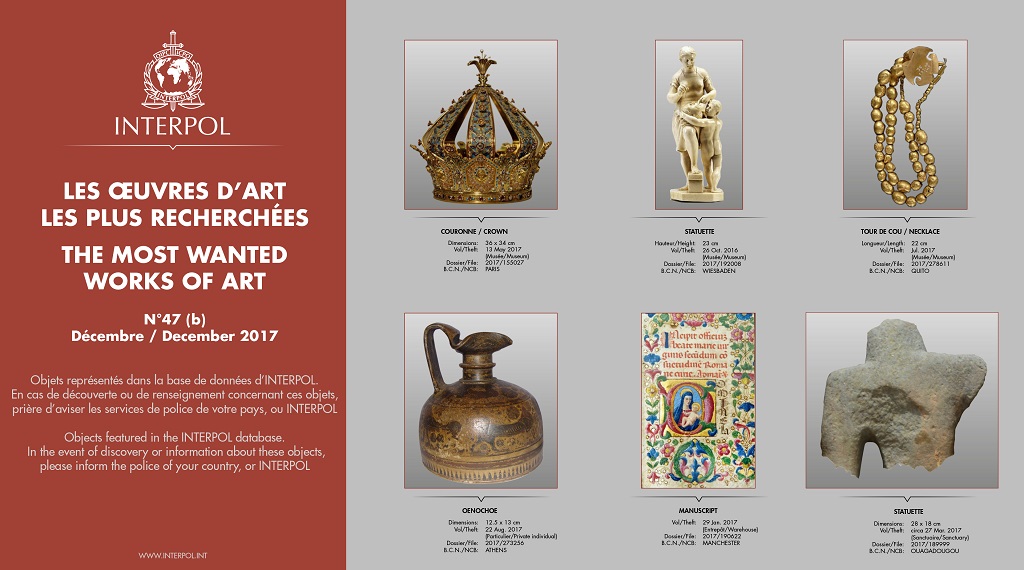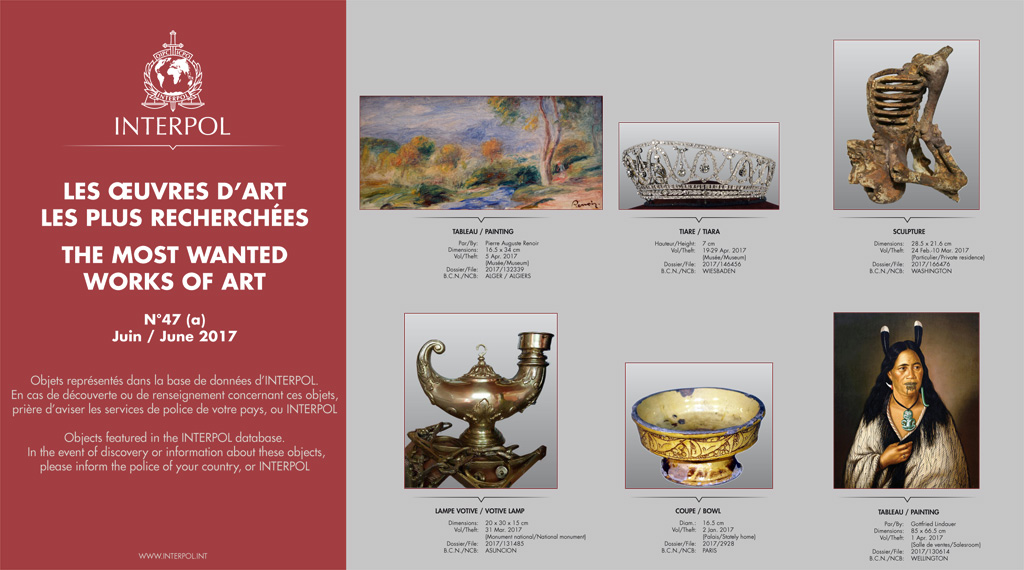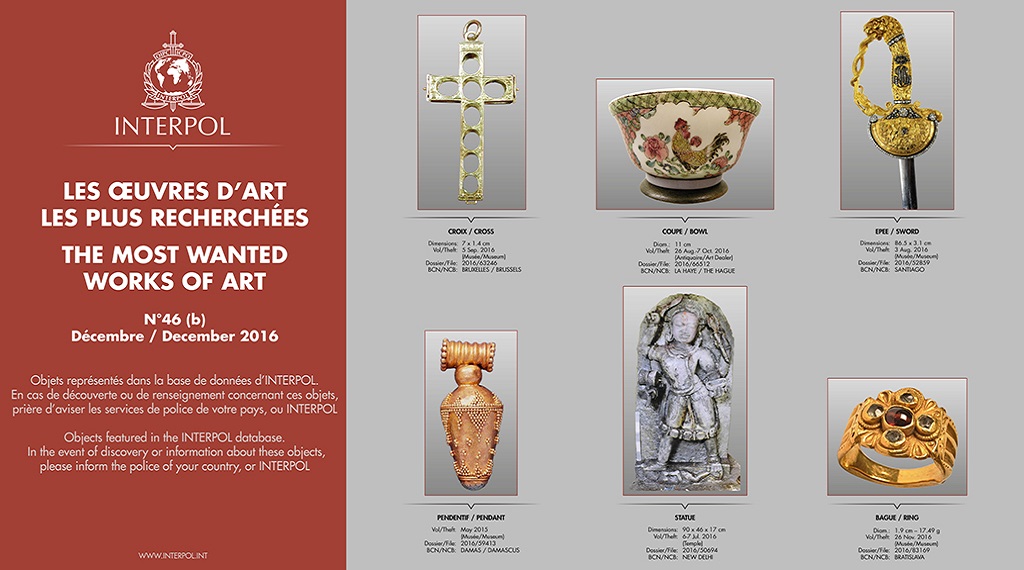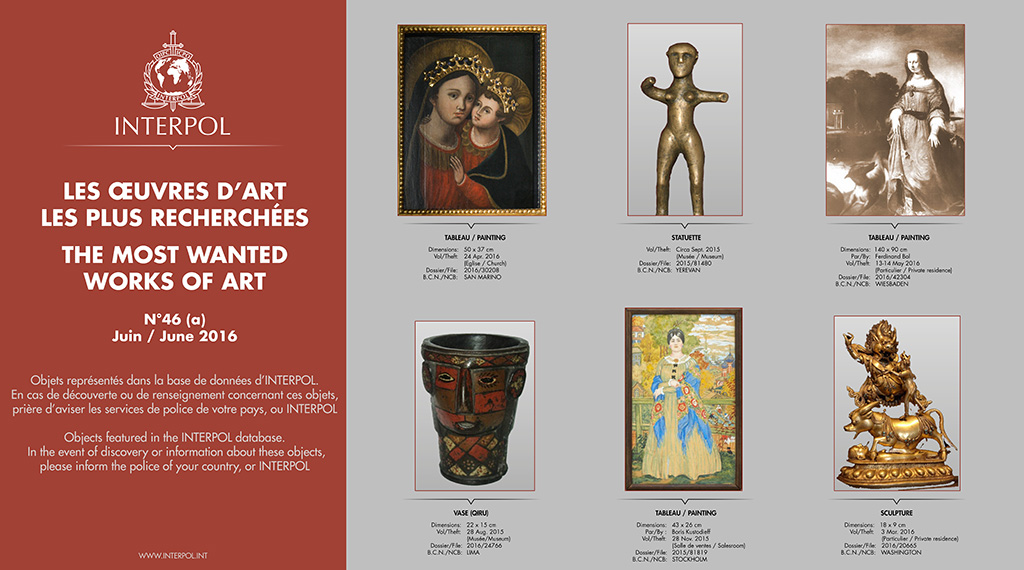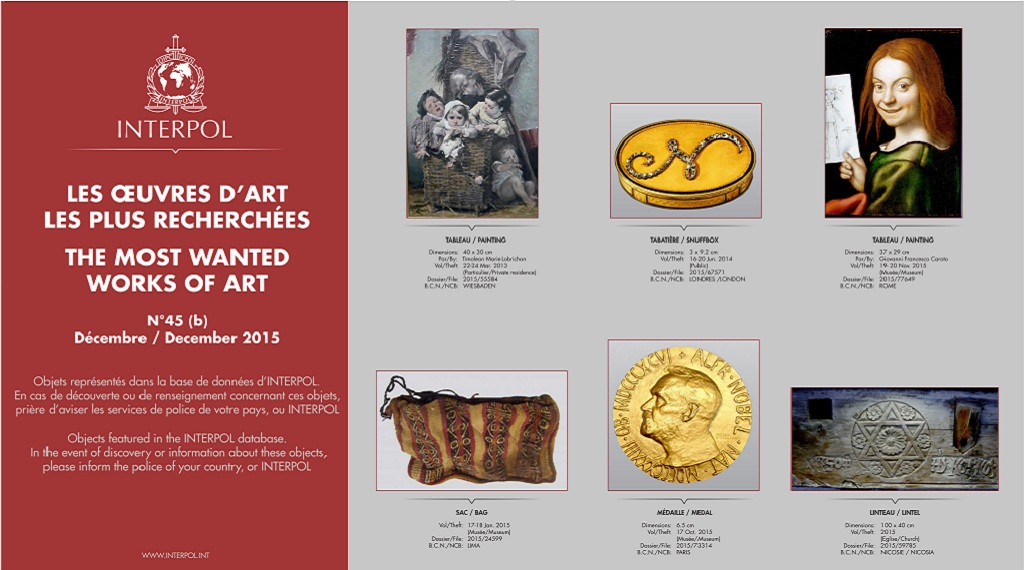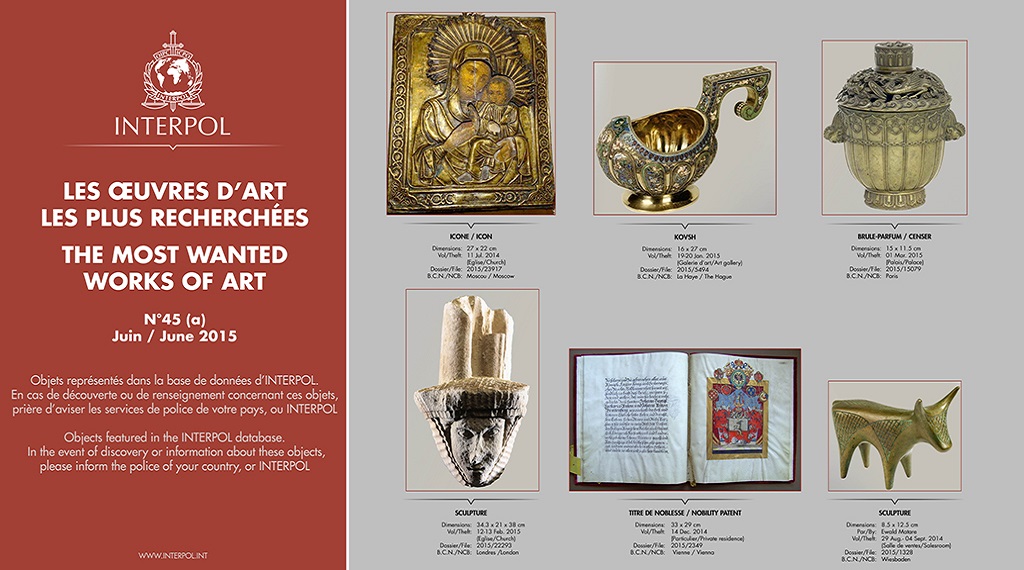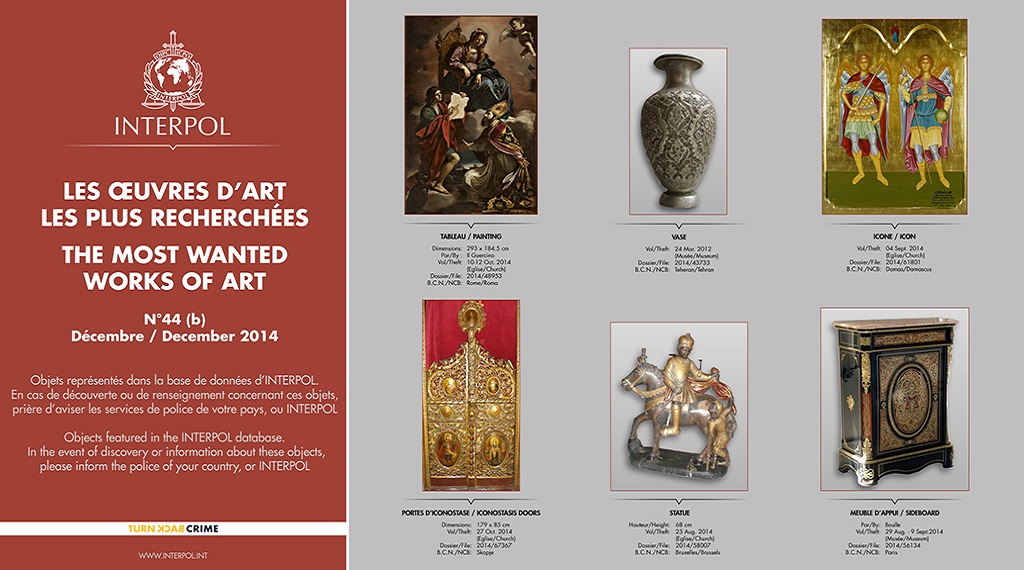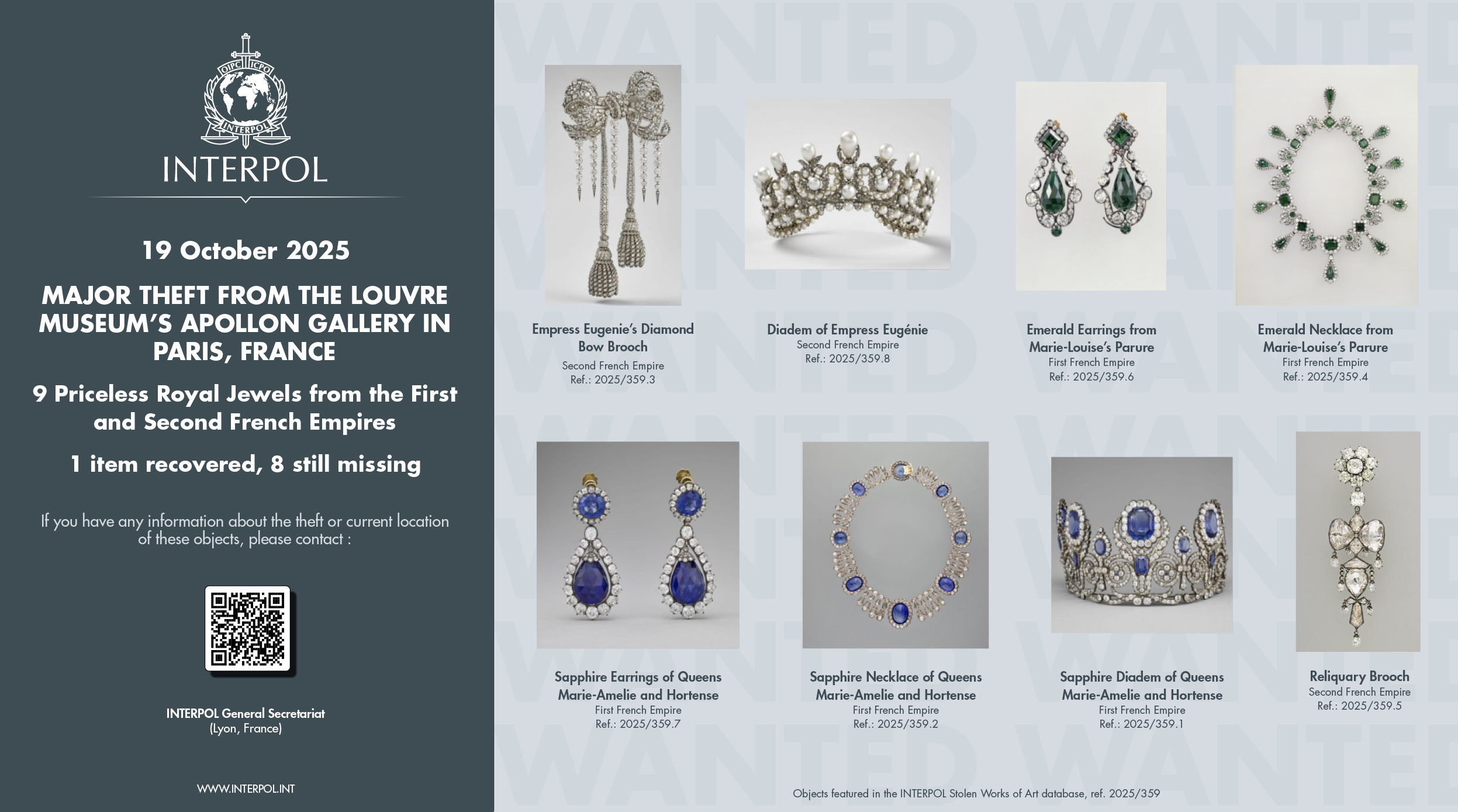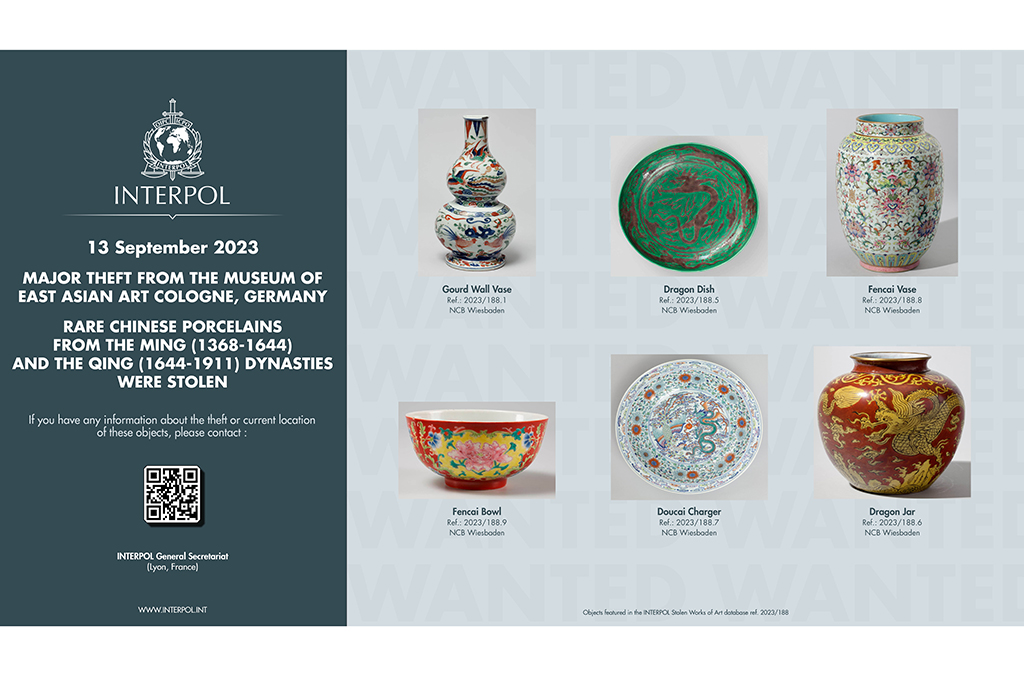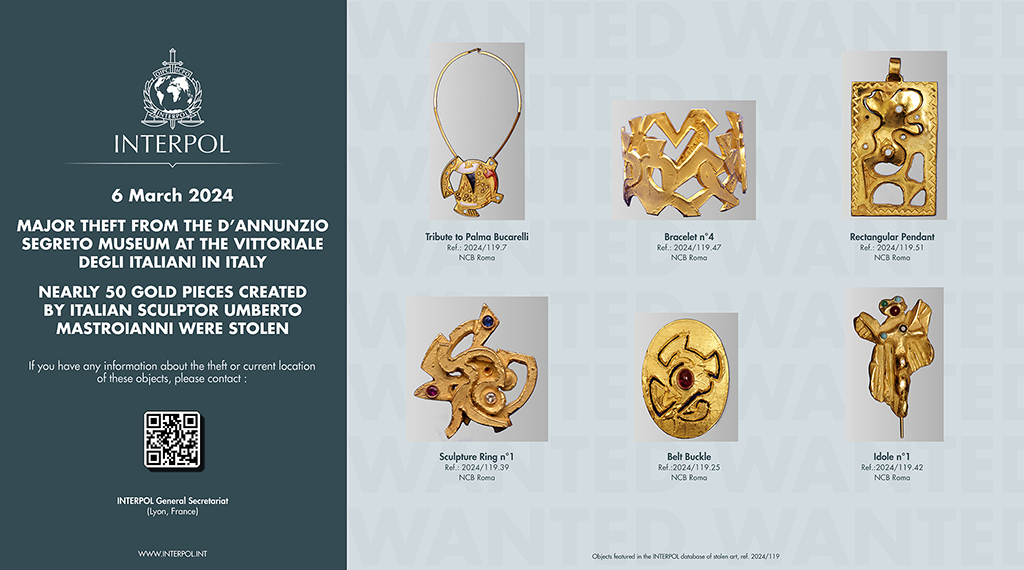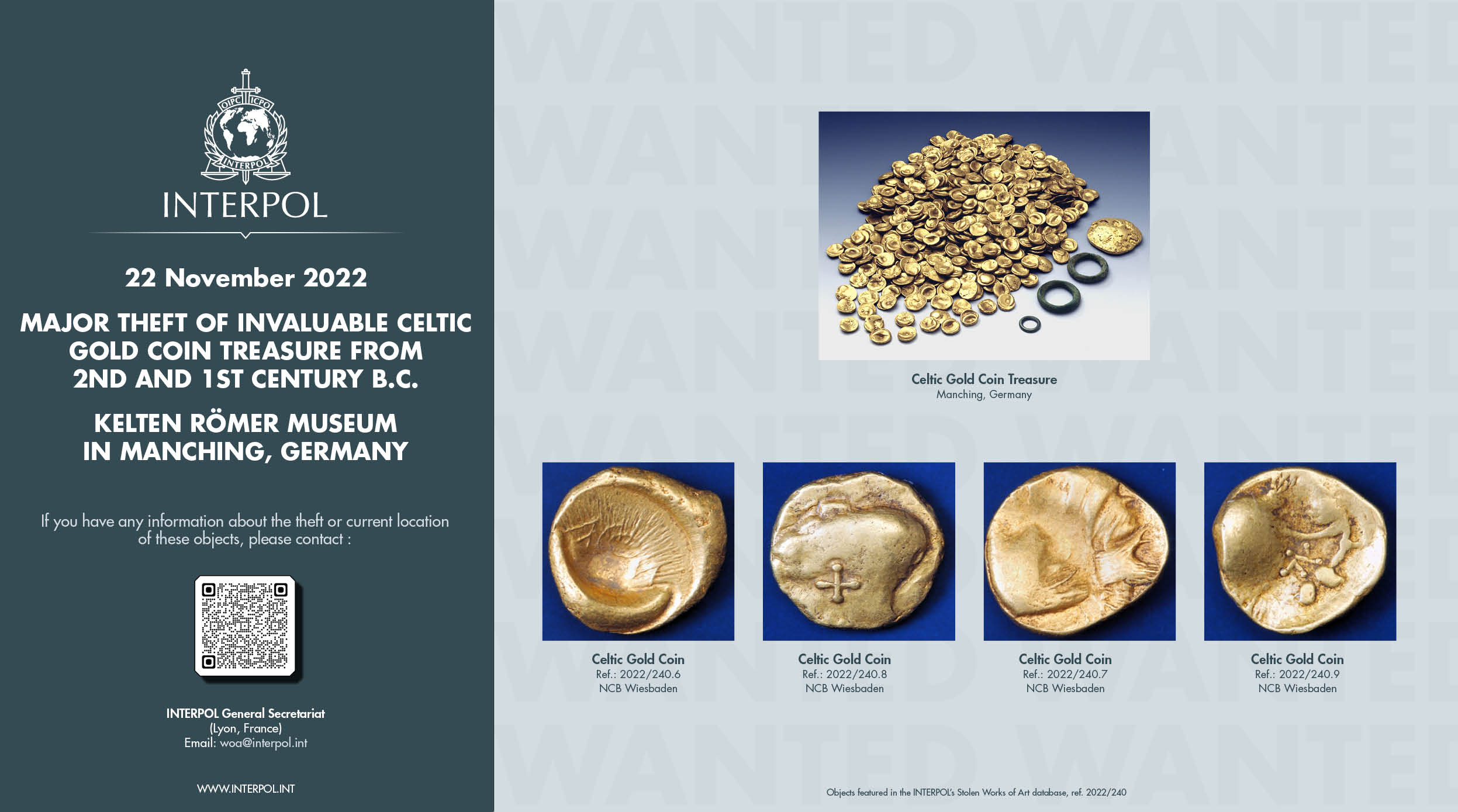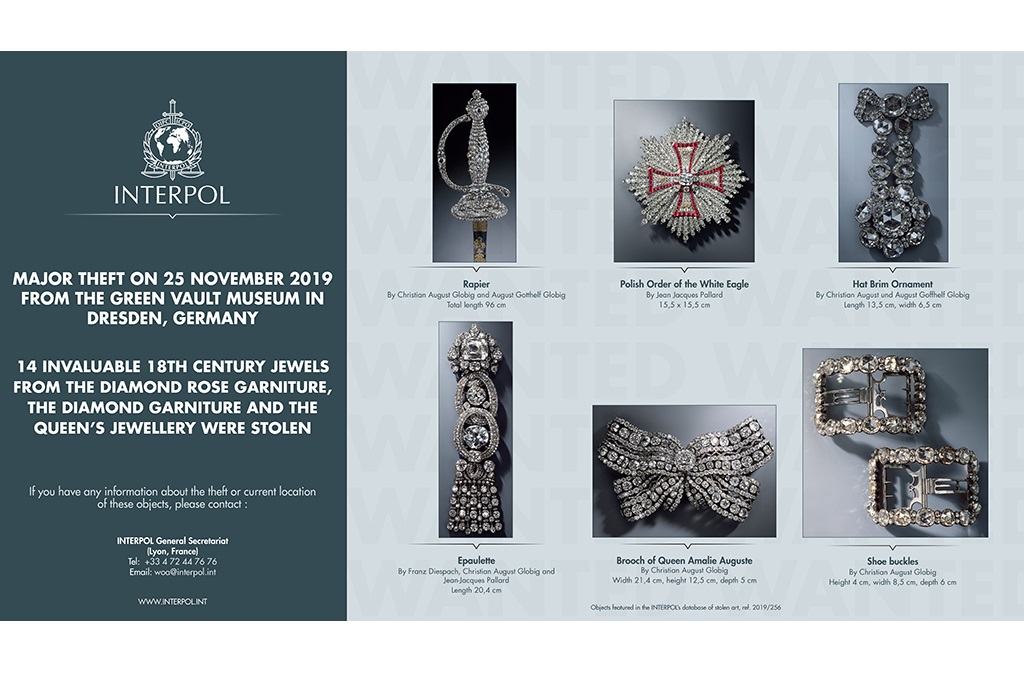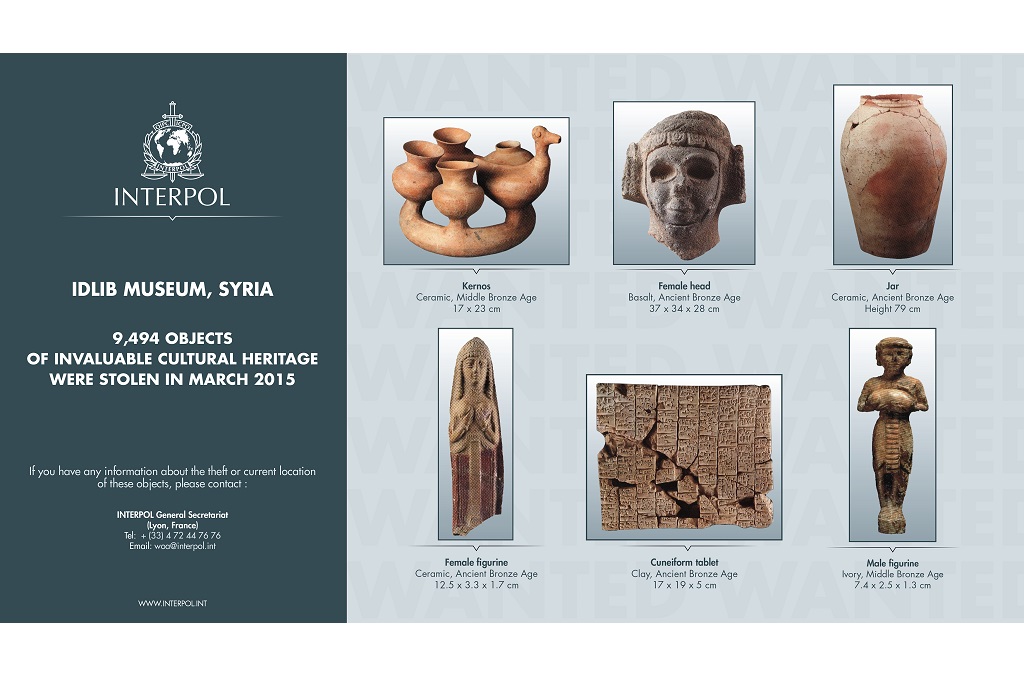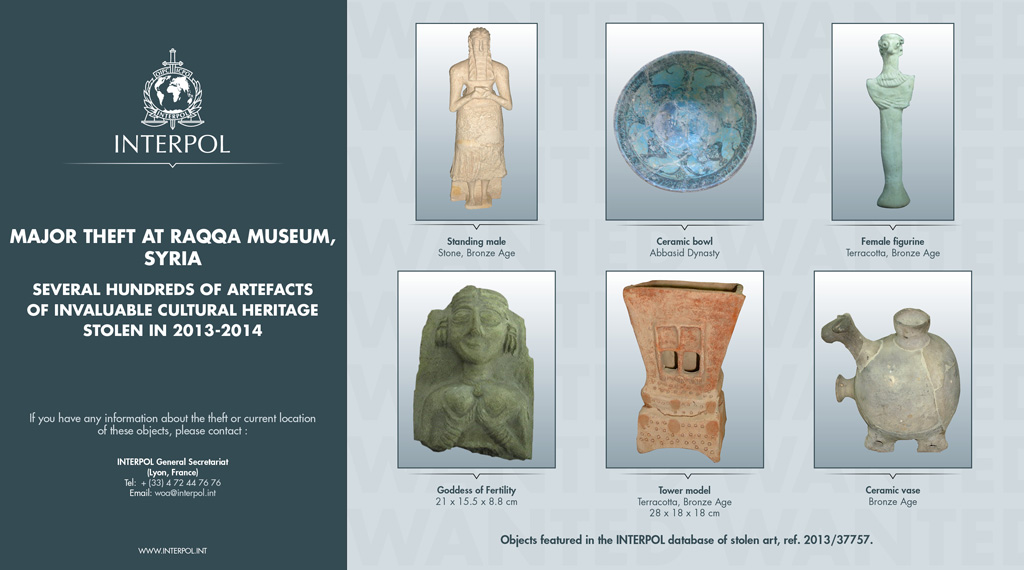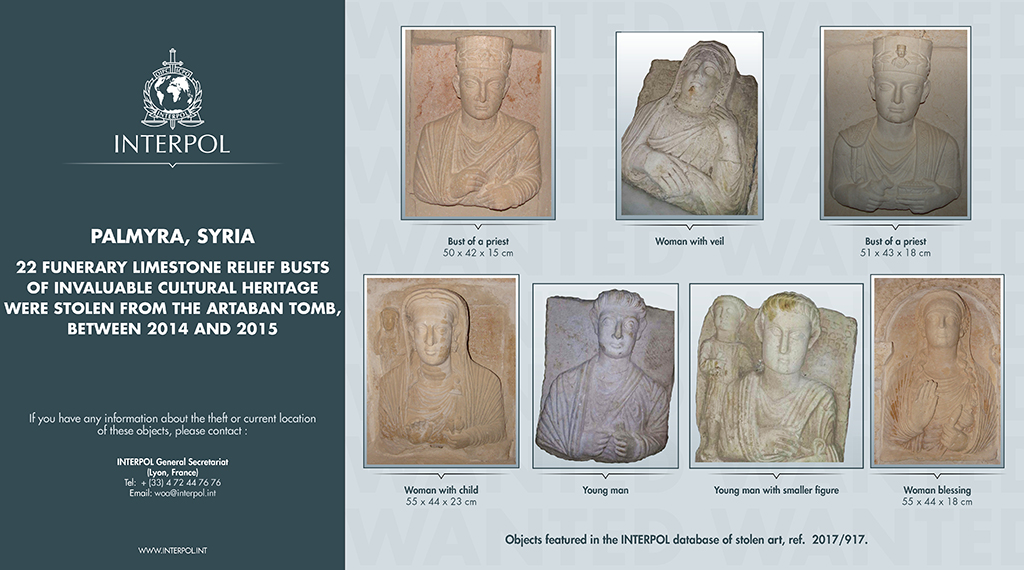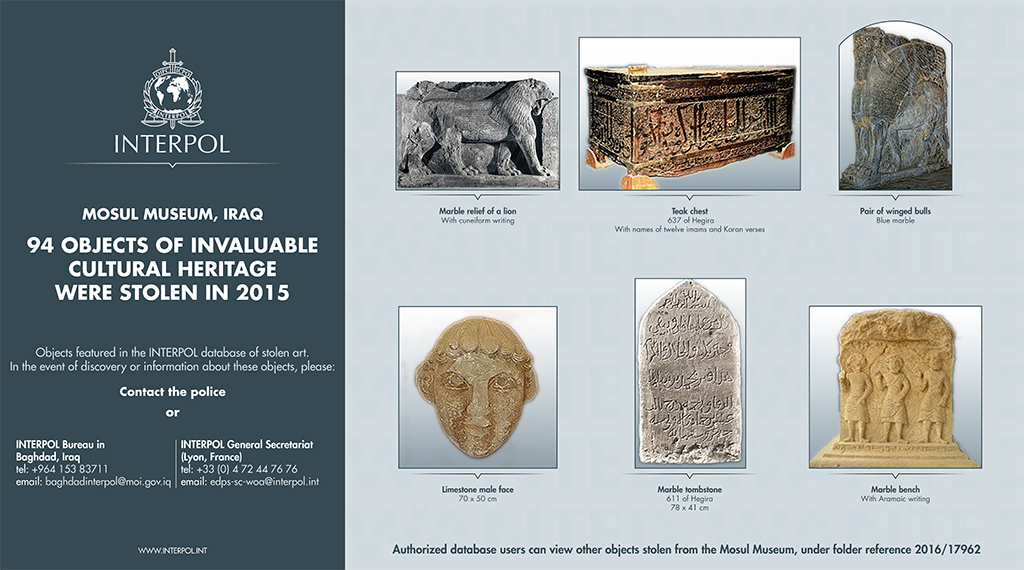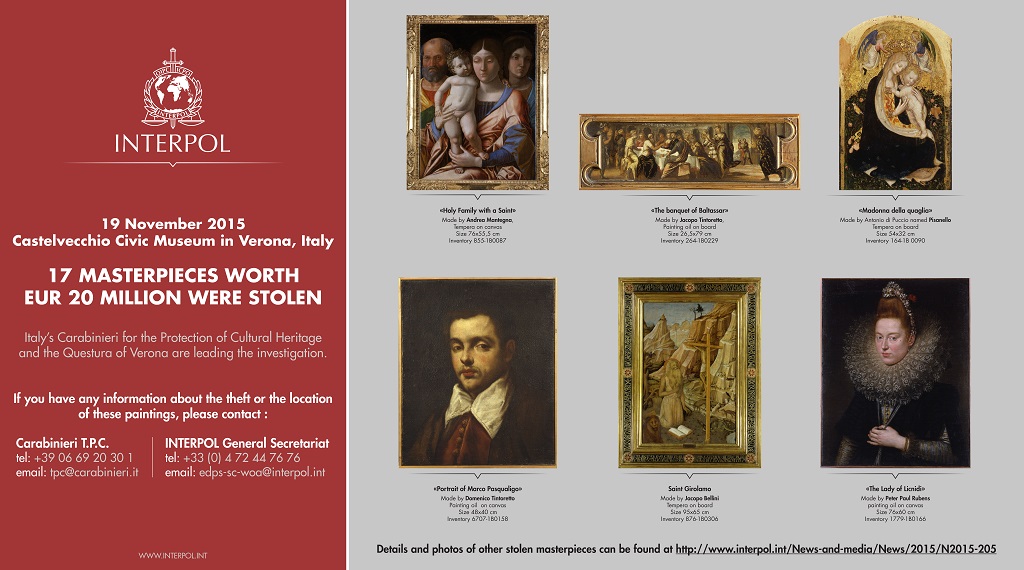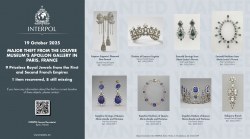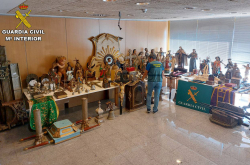Since this is a global phenomenon, it is important that countries work together. The role of the General Secretariat is primarily to support our member countries and their specialized units in this field.
We ensure information is shared among countries, bring experts together in workshops and conferences, and offer training on how to counter the traffic in cultural property.
When countries send us information about stolen or trafficked items, we analyse this and enter it into our Works of Art database. As well as being a central global repository for this information, our experts can also add value to information received.
We analyze emerging trends in art thefts such as the proliferation of counterfeit, faked or forged works, or the use of the Internet for selling works of dubious background.
Many countries do not have police units specializing in cultural property or national databases of stolen items, so we encourage and advise on this, to make our global network stronger.
Underwater experts
Detecting weaknesses in the global response to this crime is also the role of our experts. Recognizing that there was no network of police experts in underwater cultural property, we organized an international meeting with UNESCO dedicated to identifying and protecting it.
Participants reviewed and shaped best practices against the pillage, commercial exploitation, illicit trafficking and unethical recovery of underwater archaeological objects.
Alerts for thefts
Every June and December, we highlight the most wanted works of art through a poster that is distributed to countries.
Special posters can be made to draw attention to a specific theft or particular situation, such as the thefts in Paris, France, Castelvecchio in Italy, Mosul in Iraq, and Palmyra and Raqqa in Syria.
INTERPOL issues Purple Notices to warn and share info on modus operandi, objects, and concealment methods used by criminals. They can be used for cultural heritage crime.
Call by UNESCO and partners to fight against illicit trafficking of Sudanese cultural property
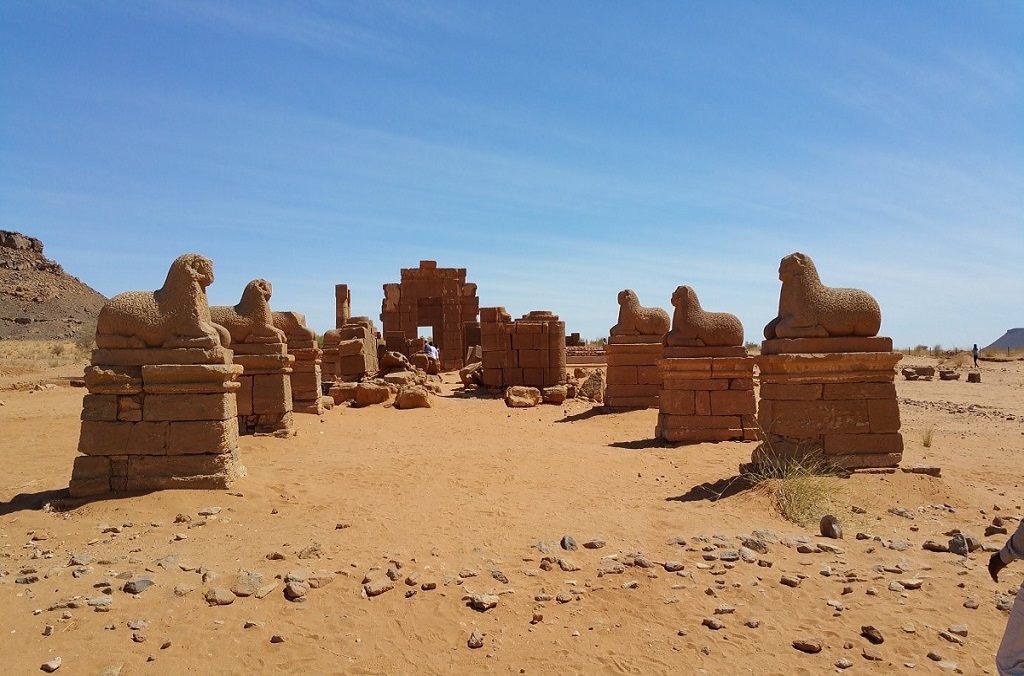
In times of armed conflict, heritage becomes particularly vulnerable. Since the beginning of the crisis in April 2023, reinforcement of measures to protect Sudan’s cultural heritage has become crucial, notably in the framework of the UNESCO 1970 Convention against illicit trafficking of cultural property and other relevant international instruments.
UNESCO, together with its partners UNIDROIT, UNODC, INTERPOL, WCO and CINOA, calls upon the public and professionals involved in the trade of cultural property to refrain from acquiring or taking part in the import, export or transfer of ownership of cultural property when they have reasonable cause to believe that the objects have been stolen, illegally alienated, clandestinely excavated or illegally exported from Sudan.
Operations lead to seizures and arrests
We support national police to carry out regional and global operations against the illicit trafficking of cultural property. Officials carry out checks and searches at border crossings and in auction houses, museums and houses, seizing illicit items and arrest those responsible.




